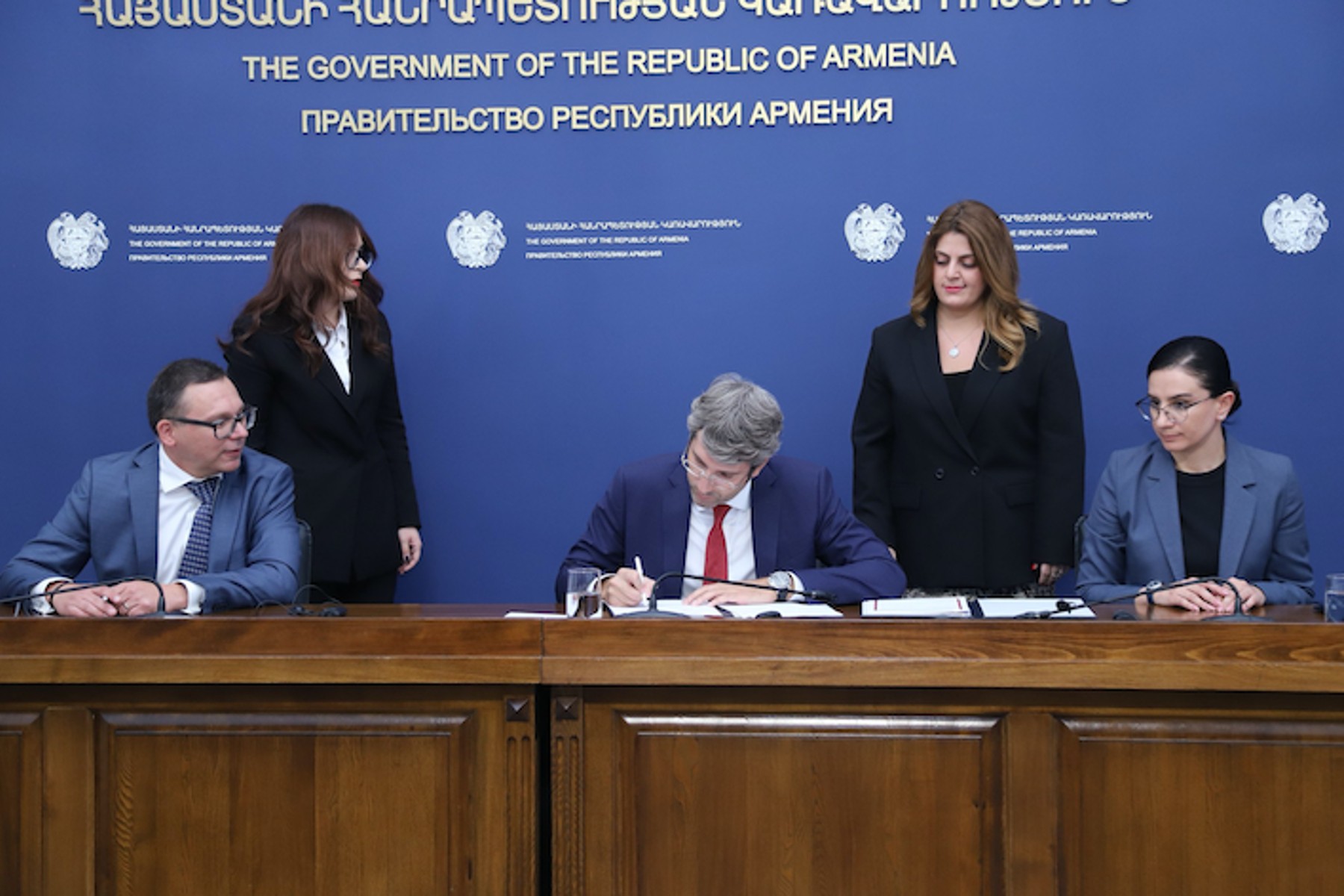
Armenia and the EU have agreed to implement an agreement to combat transnational crime as the latest in a series of agreements between Yerevan and Brussels.
Armenia’s Minister of Justice Grigor Minasyan, Prosecutor General Anna Vardapetyan, and Ladislav Hamran, the President of the EU Agency for Criminal Justice Cooperation (Eurojust) agreed to implement the agreement on Monday.
Eurojust and Armenia had signed the agreement in early April, with Armenia ratifying it in September. It made Armenia the 14th non-EU member state to sign the agreement, alongside the US, the UK, Norway, Iceland, and Switzerland.
The agreement allows Armenia to have a prosecutor to represent it at Eurojust and would provide it with access to databases and cooperation with the EU in combating transnational crime.
On Monday, Minasyan stated that the EU and Armenia had concluded ‘the most important stage of the agreement’, and that implementation had begun.
He added that the focus of the agreement was sharing data and that Armenia ‘should aim for this new milestone, ensuring that our data and databases meet the necessary standards for secure and highly protected transmission.’
‘This elevates our fight against transnational crime to a new level, enabling cooperation between leading institutions and introducing a completely new toolkit for combating crime,’ he said.
The EU’s Ladislav Hamran said that by joining Eurojust, Armenia ‘is sending a very important signal to the world that it is committed to the principles of the rule of law.’
Armenian Prosecutor General Anna Vardapetyan noted that the agreement would contribute to cooperation ‘in fighting organised crime, terrorism, money laundering, and a number of other transnational crimes.’
In April, as the cooperation agreement was signed, Armenia’s Foreign Minister Ararat Mirzoyan noted that it served to institutionalise the existing cooperation with Eurojust.
‘By signing this Agreement, we also make one step closer to the full implementation of the Armenia–EU Comprehensive and Enhanced Partnership Agreement but also this opens doors to new opportunities for exchange of expertise and capacity building, as we discussed earlier’, he said.
The EU and Armenia agreed to launch the partnership agreement in February, with talks for a new ‘more ambitious and comprehensive’ agenda now underway.
Earlier in September, Armenia and the EU launched visa liberalisation talks as part of their partnership agreement, with Prime Minister Nikol Pashinyan stating that discussions about an eventual EU membership bid were also ‘underway’.









